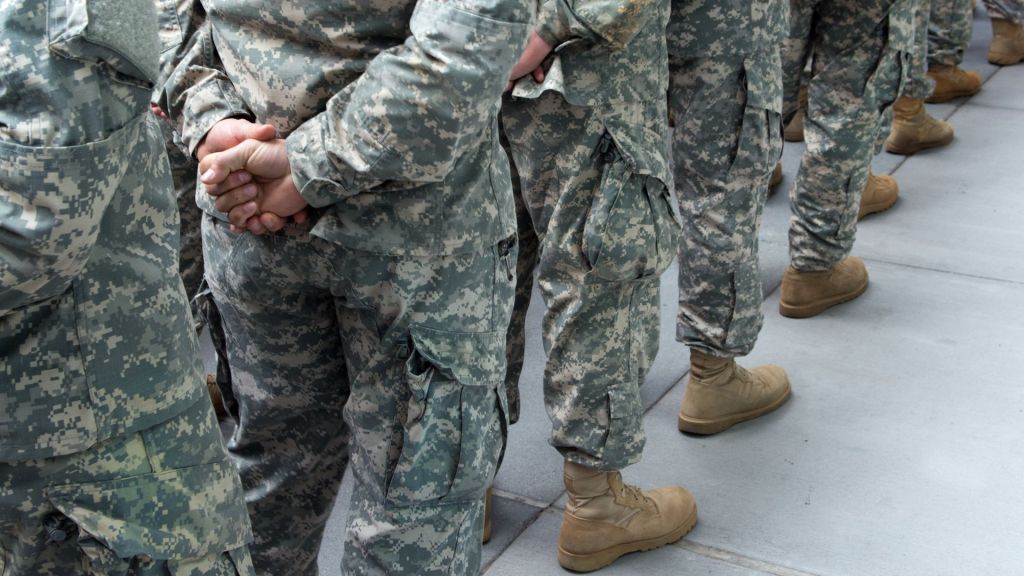
Commentary
-
Our commentary partners will help you reach your own conclusions on complex topics.
Hey, everybody, Peter Zion coming to you here from Detroit. Today we’re going to talk a little bit about trade and reshoring. Now, the United States has been in the midst of its greatest industrialization period since at least World War Two. And I would actually argue that the pace of that and reindustrialization is faster than what we went through in World War Two. The reasons are threefold. Number one, people are starting to think of security as an issue and timeliness of deliveries, Trump helped with that COVID helped with that disruptions because of the Ukraine war are helping with that. Second, because of the shale revolution, that the United States has the lowest energy prices in the world,
in terms of oil, as well as electricity, and that makes it kind of important from a processing and manufacturing point of view. And third is workforce. Despite all the issues that the United States is facing, they’re nothing compared to what’s going on in the rest of the world. Our baby boomer cadre is about a quarter smaller relative to global norms compared to everybody else. So when they retire, that’s a problem. But it’s not as much of a problem as elsewhere. And the United States has a large millennial cohort with most of the world just simply lacks. So whether it’s for workers or for consumption, the United States is where it’s at. Which brings me to Detroit. This behind me right there. That is the Ambassador Bridge linking Windsor Ontario with the Motor City, and that one bridge is the densest trade way for international exchange in the world handling roughly 1/3 I believe of all trade between Canada and the United States. Motor City is often called Motor City because it breaks a lot of cars. And that bridge handles a lot of the intermediate products that shuttled back and forth across the border between Ontario and Michigan. I expect Detroit to be one of the cities to benefit a lot from the investment that is going to come in from the rest of the world in terms of building out the industrial supply chains, specifically for automotive. Now, the city obviously has challenges that’s gonna be the topic of something else, I think. But what to look for. There are three types of Vin investments. The first is portfolio going into things like stocks and bonds, that really doesn’t help Detroit directly. The second is foreign direct investment where foreign companies come in and set up major operations. That is not something that benefits most of the auto sector in the pre existing industrial plants in places like Detroit or say Houston, but instead favors places where there’s underutilized workforces, like say the American South. And the third is just plain old, generic boring domestic expansion. In the world, we are rapidly moving to the Chinese system is breaking down for a mix of reasons arrays ranging from political incompetence and mismanagement, to energy shortages to trade sanctions, all of those benefits of trade. We’re also seeing a breakdown of the German system because without the energy imports that form the basis of their electricity and petrochemicals model, the rest of the manufacturing doesn’t work at all.
All this is fantastic for a place that already has a pre existing industrial place, industrial base for the sort of industries that need to relocate. Obviously, automotive is going to be the big beneficiary, but also look for things like heavy machinery. We have a shortage in capacity for manufacturing in the United States for things like farming equipment, industrial equipment, mining, equipment construction, and generally they are produced in similar zones to automotive because in many ways, you’re just talking about a more advanced and larger, heavier, more powerful version of your quote, normal car, Detroit, Detroit, Detroit. The other place to watch of course, is Houston, where the Gulf Coast meets the Texas triangle meets Mexico, Houston might benefit more overall, but it’s also excuse me, a much larger city. Detroit is the place where the outsized benefit is likely to be felt most acutely. Anyway, after 20 3040 years of rough times in Detroit, I think the macroeconomic winds globally are benefiting it in a huge way. And the next 30 years should be very interesting. In a good way. That’s it for me. Until next time,
-
Hurricane Helene hits US coast, Appalachia and beyond
Hurricane Helene hit Florida and Georgia overnight between Sept. 26 and 27 as a Category 4 hurricane, and accompanying storms will continue reaching deeper into the continental United States today. Dangerous flash flooding from the hurricane, known as storm surge, was some of the worst flooding that the Tampa Bay area has ever seen, and… -
Israel holds upper hand against Lebanon, Hezbollah and Iran
On Wednesday, Sept. 25, Hezbollah launched a ballistic missile at Tel Aviv in retaliation for Israel’s explosive pager attack that blew up devices across Lebanon. Although Israel’s defense systems intercepted the surface-to-surface missile, the attempted strike on Tel Aviv marked a significant escalation by Hezbollah. Since the siege on Gaza began, shortly after the Oct. 7, 2023,… -
The Sinaloa Cartel civil war
Fears of a civil war within the Sinaloa Cartel are growing as violence between competing factions within the cartel continues. The Mexican Army has dispatched around 600 elite troops to Sinaloa to help quell those fears, in addition to roughly 2,200 regular soldiers and National Guard. Watch the above video as Straight Arrow News contributor… -
New Ukrainian weapons hit Russia where it hurts
Ukrainian drones struck a major Russian ammunition depot, triggering a massive explosion that was captured on camera. According to the Ukrainian military, 2,000 tons of munitions had arrived at the depot before the attack. Over the past two years, Ukraine has significantly increased its domestic drone production, allowing it to scale up attacks on military… -
Weighing social costs vs. economic benefits on immigration
Global human migration is one of the defining elements of our current historical era, according to the United Nations. Migrants face both the incentives to leave — forced out by climate change, crime and corruption, extreme poverty or violence — and incentives for where to go, based on available job opportunities and so on. Migration…
Latest Stories
-
 Getty Images
Getty Images
Potential top seeds still making their case for NCAA tournament committee
-
 Getty Images
Getty Images
DOD identifies $80 million in diversity and climate spending
-
 Getty Images
Getty Images
Severe weather threatens Mardi Gras celebrations in New Orleans
-
 Getty Images
Getty Images
MLB spring training: Mixed bag for National League teams 1 week in
-
 Getty Images
Getty Images
Illegal border crossing apprehensions plunge to 8,300 in February: Report
Popular Opinions
-
In addition to the facts, we believe it’s vital to hear perspectives from all sides of the political spectrum.
Latest Opinions
In addition to the facts, we believe it’s vital to hear perspectives from all sides of the political spectrum. We hope these different voices will help you reach your own conclusions.
The opinions published in this section are solely those of the contributors and do not reflect the views of Straight Arrow News.





















Latest Commentary
We know it is important to hear from a diverse range of observers on the complex topics we face and believe our commentary partners will help you reach your own conclusions.
The commentaries published in this section are solely those of the contributors and do not reflect the views of Straight Arrow News.
Dr. Frank Luntz
Pollster and Political Analyst‘Biased’: What Americans think of ‘mainstream media’
‘Getting rid of them’: Americans discuss Trump and immigration
‘Woke’: Why some Biden 2020 voters backed Trump in 2024